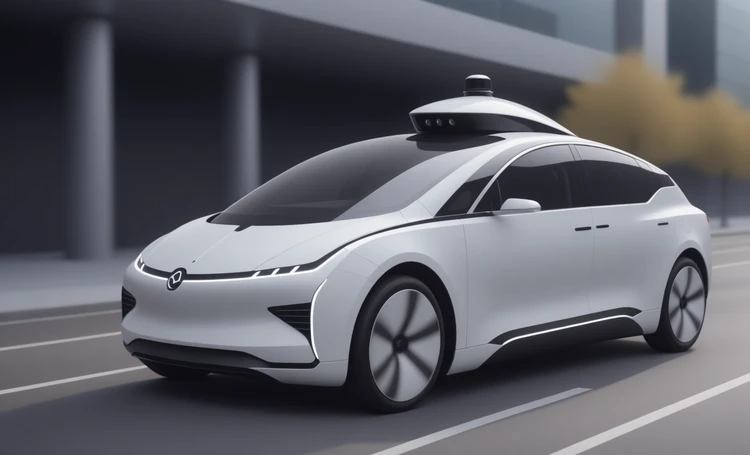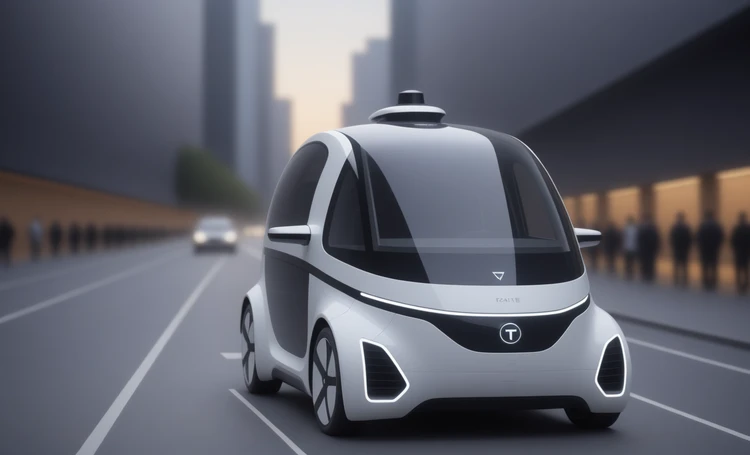🚗 Autonomous cars and legislation: what awaits us?
Autonomous vehicles are just around the corner, and read more about the legislation here to understand the changes they will bring to our lives. This issue worries not only technologists and car manufacturers, but also legislators, as well as everyone involved in road traffic.
📜 Legislative framework
Adaptation of laws to new realities
With the development of autonomous vehicles, legislation will have to adapt to new technologies. In many countries, active work is already underway to create and amend existing legal regulations to ensure the safe introduction of autonomous cars into mass use.
Liability in case of an accident
Questions of liability in accidents involving autonomous vehicles remain open. Who will be held responsible in the event of an accident: the manufacturer, the vehicle owner, or the control system itself? These discussions continue to shape legislative initiatives around the world.
Technology standardization
To ensure road safety and compatibility between different autonomous driving systems, it is important to create common standards and requirements for the technologies that will be used in such vehicles.
🤖 Technological innovation and safety
Advanced technologies and security systems
Autonomous cars are equipped with many sensors and systems that allow them to navigate in space and ensure safe movement. However, the safety of these systems is a subject of particular attention to both manufacturers and legislators.
Ethical dilemmas
Programming autonomous vehicles to respond to unexpected situations on the road raises ethical questions. For example, how should a car behave in a situation where a collision is inevitable: try to protect passengers or minimize possible losses?
Artificial Intelligence Training
The process of training artificial intelligence that drives an autonomous car requires enormous amounts of data and time. This provides increased reliability and safety, but also requires careful regulation and monitoring.
🌐 International cooperation
Exchange of experience and information
International collaboration is key to developing standards for autonomous vehicles. Countries are actively exchanging experience and information, which contributes to the creation of common approaches to legislative regulation.
Development of common norms and standards
The creation of international norms and standards will ensure the compatibility of autonomous vehicles in different countries, which is important for cross-border traffic and the development of international trade.
Against cyber threats
With the increasing digitalization of vehicles, international cooperation is also aimed at developing measures to counter cyber threats that could disrupt the operation of autonomous driving systems.
💵 Economic aspect
Impact on the insurance market
Autonomous cars could radically change the auto insurance market. Reducing the number of accidents due to autonomous technology will potentially lead to lower insurance rates.
Changes in the labor market
The introduction of autonomous vehicles will impact the labor market, including driver occupations and related services. This requires the development of programs for retraining and adaptation of the workforce.
New business models
Autonomous cars open up opportunities for new business models, including car rental services, autonomous taxis and logistics services.
📊 Statistics and forecasts
Dynamics of development of autonomous vehicles
According to M research, the market for autonomous cars will continue to grow. This is due to investment in technology and increased interest in safe and efficient transport.
Traffic Impact Projections
Experts predict that with the introduction of autonomous cars, the rate of road accidents will decrease. This is due to the exclusion of the human factor, which is the cause of most accidents.
Contribution to the environment
Autonomous vehicles can help reduce carbon emissions by using fuel more efficiently and optimizing routes.
🚦 Legislative initiatives by country
European Union
In Europe, work is actively underway to create a unified legal framework to regulate the use of autonomous cars, which will allow member countries to synchronize their legal frameworks.
USA
In the US, a number of states have already developed and passed laws regulating the testing and operation of autonomous cars, but federal legislation is still being developed.
Germany
Germany, as one of the leading automotive powers, is actively involved in the development of autonomous driving technologies and legislative initiatives aimed at supporting innovation in this area.
📈 Impact on infrastructure
Road modernization
Adaptation to autonomous vehicles requires modernization of road infrastructure, including the installation of road signs compatible with automatic perception systems.
Development of communications and networks
The development of communication networks such as 5G is key to ensuring reliable and smooth operation of autonomous driving systems.
Changes in urban planning
The advent of autonomous vehicles will require a rethink of urban planning concepts, including the creation of dedicated lanes for autonomous vehicles and areas for charging or servicing them.
💡 Innovations and breakthroughs
Innovative companies
Companies such as Tesla, Inc., Waymo and Uber, are making significant contributions to the development of autonomous driving technologies and testing them in real-world road conditions.
Research projects
Research in the field of artificial intelligence and machine learning plays an important role in the development of autonomous transport, making it more reliable and safe.
Technological innovation
Advances in sensor technologies, data processing and software are the basis for the creation of fully autonomous vehicles that can navigate autonomously in difficult road conditions.
🤝 Cooperation and partnerships
International interaction
International cooperation is needed to harmonize requirements for autonomous vehicles and their safety. Organizations like the European Commission and the UN are working to standardize rules.
Business-Government Partnerships
Collaboration between the private sector and government agencies is helping to accelerate the adoption of autonomous vehicles and the adaptation of legislation to new technologies.
Public-private initiatives
The creation of pilot zones for testing autonomous cars using public funding and private investment allows them to be more effectively integrated into the urban environment.
🛣️ The future of traffic
Rethinking the transport system
Autonomous cars promise dramatic changes in the transport system, reducing traffic jams and increasing overall mobility of the population.
Security and Availability
It is expected that thanks to autonomous cars, road safety will improve, and transport will become more accessible to the general population, including older people and people with disabilities.
Interaction with public transport
Integrating autonomous vehicles with existing modes of public transport can lead to a seamless, efficient transport network.
🗣️ Public opinion and ethics
Public perception
Despite technological advances, many people are still wary of the idea of autonomous driving due to concerns about safety and control of the vehicle.
Ethical dilemmas
Developing algorithms for autonomous cars faces ethical issues, such as critical decision making , that require more research and public debate.
Transparency and trust
To increase public confidence in autonomous vehicles, manufacturers must provide transparency about their systems and safety approaches.
🏁 Results
The development of autonomous vehicles and the corresponding legal framework is a complex process in which not only technological innovations, but also social, ethical and legal aspects play an important role. The introduction of autonomous vehicles promises many benefits, including improved road safety and improved transportation accessibility. However, achieving these goals requires enhanced international cooperation, thoughtful legislative changes and active public involvement in discussing and resolving emerging issues.




